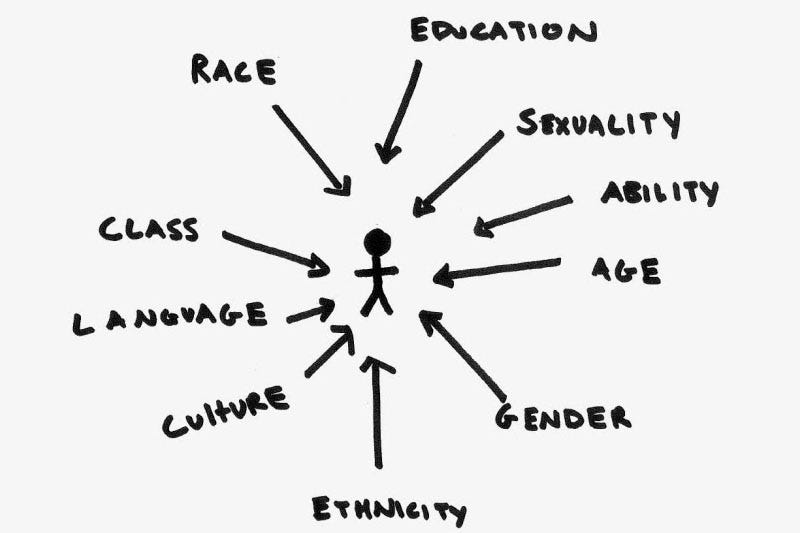Impossible for Men, Unremarkable for Women
Intersectionality and the Gendering of Asexual Erasure
Asexual erasure—or the delegitimization of asexuality as a “real” identity—is a common ace experience. But in my research, I’ve found that asexual erasure is gendered. Spoiler alert: the way we talk about that erasure often centers ace men’s experiences.
Often, asexual erasure is explained as stemming from compulsory sexuality, or the idea that everyone experiences sexual attraction. Yet many ace women I interviewed for my dissertation said that others responded to their asexuality by questioning how that makes them different from women in general.
I find that for men, asexuality is framed as impossible. For women, it is framed as unremarkable. Both assumptions erasure asexuality—but in different ways.
Those differences matter. The gendering of asexual erasure reveals, for example, key insights into compulsory sexuality and how it connects to rape culture.
The assumption that women generally don’t experience sexual attraction (and therefore ace women are unremarkable) coexists with the assumption that women should (selectively) provide sex (to men). That means that men and women are both culturally compelled to respond to men’s supposedly innate sexual desire. So reactions like “well, most women don’t experience sexual attraction” fit within a framework that delegitimizes women’s sexual agency.
Dismissing ace women as no different from allosexual (i.e. non-asexual) women speaks to a deep indifference—or even hostility—to women’s sexual agency. The hidden message is “who cares about women’s sexual attraction? Sexual attraction isn’t relevant for sexual objects. And women are sexual objects.”
Meanwhile, gender expansive ace folks who don’t fit within the gender binary often see both their gender and their sexuality erased.
Yet women and nonbinary folks’ experiences of asexual erasure are less remarked upon than the type of erasure that ace men are likelier to face. The men on the asexuality spectrum who I interviewed said that their sexual identity was typically erased under the assumption that men are naturally sexually voracious—that sexual attraction is innate to being human.
This experience of erasure is harmful as well. But it’s worth noting that, according to current data, asexual men are far outnumbered by asexual women and by those who are neither men nor women. A 2016 survey of 9,294 asexual-identifying individuals, for example, found that 63 percent identified as woman/female, 10.9 percent as man/male, and 26 percent as “none of the above.”
We should keep gender in mind when discussing asexual erasure. We should also consider how other power relations (like race, class, disability, etc.) intersect with asexuality to shape experiences of erasure. In other words, we should examine asexuality intersectionally.
With an intersectional approach—or one that acknowledges that various systems of power are mutually co-constitutive and inseparable fro one another—we can better reflect the diversity of asexual people’s experiences.
As Sarah Cosgriff has noted, gender is far from the only power relation that shapes asexual erasure.
Certain racialized groups, like East Asian and Latinx women, are fetishized in Western culture. For groups often stereotyped as sexually submissive, like East Asian women, asexuality can be erased through racist assumptions that sexual passivity is “natural” to them. (I’ll be writing a post specifically about how asexual erasure is racialized soon; stay tuned.)
This suggests that the way we talk about asexual erasure doesn’t merely center the experiences of men: more specifically, it likely centers the experiences of White, non-disabled, cisgender, middle-class, Western men.
Without an intersectional understanding of erasure, we risk falsely positioning a specific group’s experience as universal. Put simply, we risk erasing many people’s experience of erasure.
Canton Winer is a sociology Ph.D. candidate at the University of California, Irvine. His research focuses on the relationship between gender, race, and sexuality, with particular focus on the experiences and perspectives of asexual individuals. You can find him on Twitter at @CantonWiner or sign up for his free Substack here.



